The tourism industry should have been careful what it wished for. Before March of this year, overtourism was one of the most critical and most talked about issues of the tourism industry. In 2018, the term was even recognized as one of the Oxford English Dictionary words of the year. For those unfamiliar with the concept, overtourism is when places such as Barcelona, Venice, and Angkor Wat become overrun with tourists resulting in impacts like local communities losing their sense of place and environments being destroyed. Despite tourism employing 1 in 10 people and accounting for 10% of the world’s GDP, we were collectively wishing for fewer travellers. When the COVID-19 crisis hit, our wish was granted, but with planes grounded and borders shut across the globe, we were wildly unprepared.
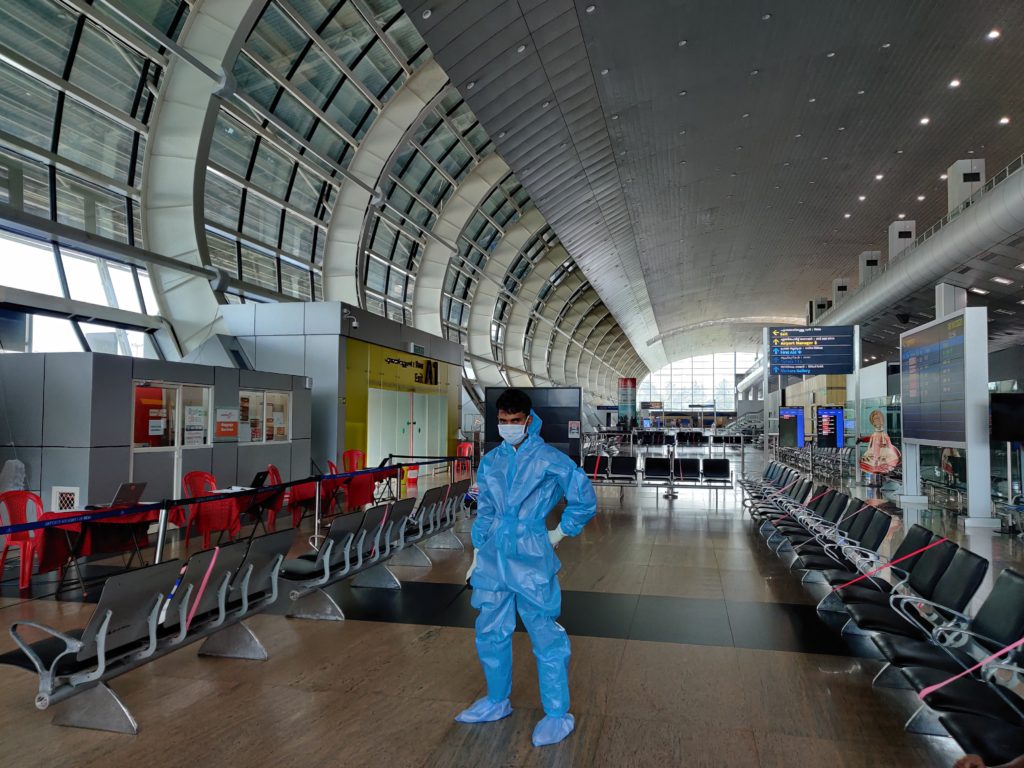
Empty airport amid COVID-19 pandemic / Govind Krishnan
We are now shifting our worries in the opposite direction, undertourism. You might think that by staying home we are helping the planet, and in many ways, we are, but the positive news stories of wildlife flourishing and pollution levels dropping are showing unrealistic accounts of what is happening around the world. From wildlife trafficking and deforestation to loss of income and cultural traditions, the impacts of COVID-19 on developing nations have been devastating.
Here are 5 destinations where the lack of tourism is having dire consequences.
1. Galapagos Islands
About 1,000km off the coast of Ecuador are the Galapagos Islands, a UNESCO Heritage Site known for its incredible biodiversity. Along with unique mammals and plants, 20% of the marine species found in the island’s surrounding waters are endemic to the region.
The Galapagos Marine Reserve is currently one of the biggest and most diverse marine protected areas in the world. Despite its size, many of the species that live within it are beginning to venture outside its borders due to rising ocean temperatures and increased human activity.
To protect the Galapagos’ rich biota, local tour boats and fishing vessels have been monitoring the reserve for decades. However, when the pandemic hit, these boats were forced to stop their surveillance. As result, in July around 300 Chinese fishing vessels were found swarming the edge of the marine reserve borders, waiting for any opportunity to fill their 1,000-ton ships with marine life, much of which is endangered. While this has caused alarm, the pandemic has meant that not much can be done, as the Galapagos economy is 90% dependent on tourism revenues.
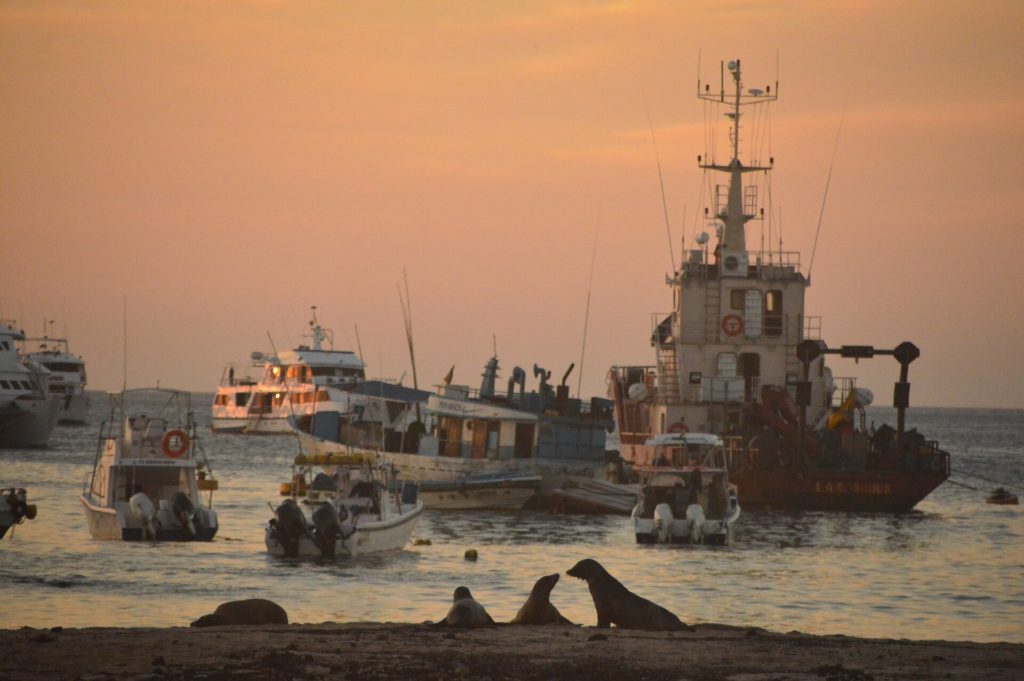
Fishing boats off the Galapagos coast / Pixabay/CC0 Public Domain
Along with grounding local tour boats, the lack of tourists has meant that stores have been boarded up and garbage from the illegal fishing boats has begun collecting on the beaches.
On a brighter note, the reduction of visitors has also resulted in the return of many animals to the area including whale pods and brown pelicans. Despite these few benefits, the coronavirus pandemic has proven that tourism plays a critical role in the long-term upkeep and protection of the Galapagos.
Learn more here.
2. South Africa
In many African countries, wildlife safari tourism has brought a huge boost to local economies and provided locals with steady employment opportunities. In South Africa alone, tourism revenues are valued at more than $9 billion. This income funds wildlife conservation and motivates locals to offer sustainable tourism offerings.
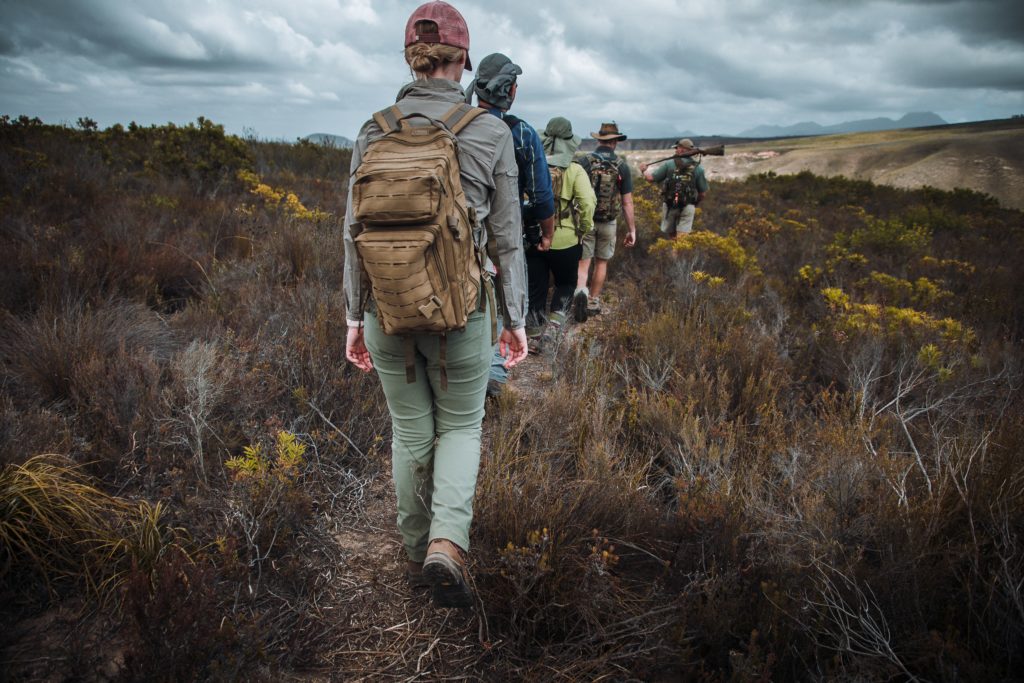
Walking safari in South Africa / Sebastian Canaves
While some reserves have annual budgets propped up by the South African government, most private fenced-in wildlife preserves are completely reliant on tourism. Tourist revenue funds the salaries of rangers, provides supplies and keeps the monitoring vehicles operating. But with the sudden drop in visitation since March, it has become impossible to pay for this intensive management. As a result, it’s estimated that the pandemic has endangered up to 600,000 wildlife protection jobs in the country.

Dehorned white rhinoceros / Tracy Hammond
With the absence of rangers and tourists as obstacles, poaching has increased significantly. In South Africa’s North West province, a popular tourism area known to be a relatively safe place for wildlife, at least 9 rhinos had been poached one month into the pandemic.
With the lack of income, many local villagers are being forced to hunt animals such as giraffes for bushmeat. Other African countries like Botswana, Tanzania, Kenya and Uganda have also seen poaching numbers soar.
Learn more here.
3. Vanuatu
In Vanuatu, an island nation in the South Pacific Ocean, the coronavirus closures have proved disastrous for local artisans who depend on selling handicrafts to tourists. With no visitors means no income and many of the businesses are being forced to look for new work. Along with families losing their incomes, the discontinuing of local production is also having a huge impact on culture.
The tourism industry in Vanuatu and in many other destinations around the world helps to sustain many cultural heritage practices. The skills and knowledge required to make these crafts have been passed down from generation to generation and without tourists purchasing them, there is fear that these traditional practices may be lost. In much of Polynesia, a Salusalu is a style of garland often used to welcome guests and celebrate. While the necklaces are an important part of Vanuatuan heritage, the domestic market can not support the practice on its own.
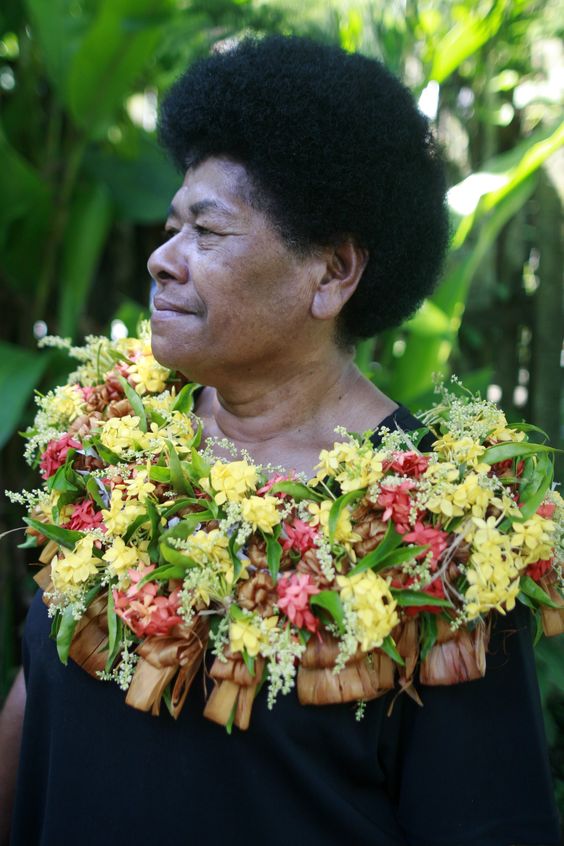
Woman & her Salusalu / Belinda Godward
This issue isn’t confined to Vanuatu either, with basket weavers in Fiji, traditional papermakers in Vietnam and Indigenous artists in the United States, also feeling the effects. Particularly worrying is the impact on women as in many developing nations they do not have the ability to work in other industries.
Learn more in this ABC Radio Australia broadcast hosted by Prianka Srinivasan on June 4th, 2020:
4. Brazil
In the Brazillian Amazon, the coronavirus pandemic has spurred an array of issues. Mass logging, illegal mining and insufficient protection of Indigenous communities has lead to a critical situation in the world’s largest rainforest.
In March, deforestation of Brazil’s portion of the Amazon was up 30% compared to the previous year. In the same month, environmental monitoring services were cut due to the outbreak. As a result, in just the first three months of 2020, an area the size of New York City was destroyed.
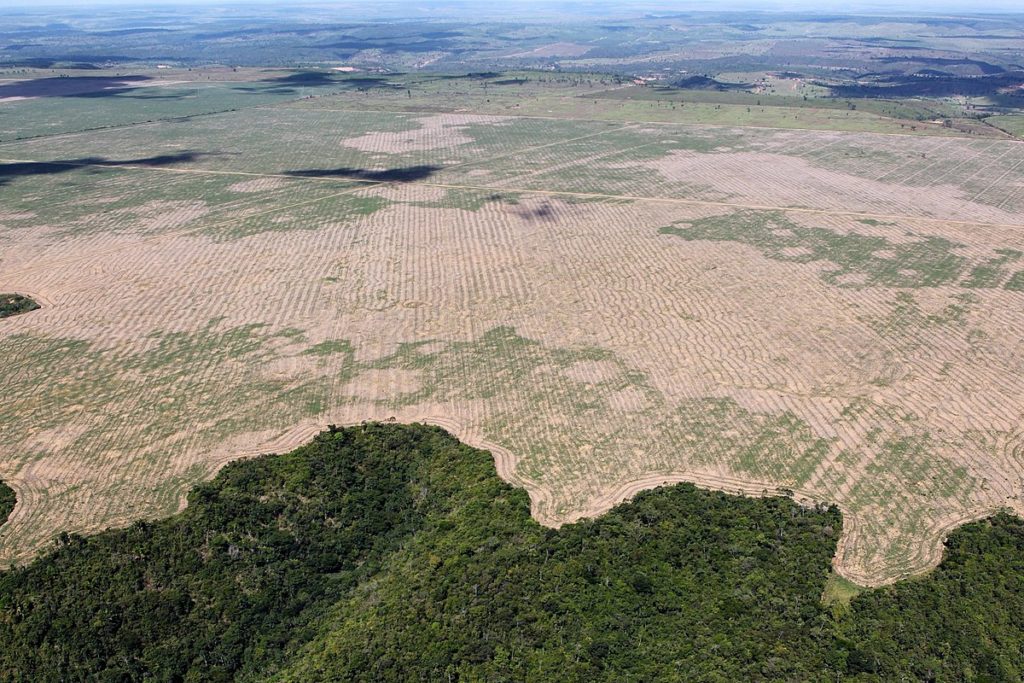
An illegally extracted area of the Gurupi Biological Reserve on Caru and Alto Turiaçu Indigenous Lands, in Maranhão, Brazil / Felipe Werneck
Troubling financial times are forcing rural people to depend on the forest for food and income and as the lockdown has ceased monitoring, this has made it easier for groups to expand their illegal logging and mining areas.
To make matters worse, much of this illegal extraction is happening on Indigenous lands. These communities themselves are facing a plethora of issues. For one, limited access to medical resources has meant widespread coronavirus cases and deaths. According to Brazil’s Indigenous People Articulation, as of August over 25,000 Indigenous people in 146 tribal communities have tested positive for the virus. Additionally, many of these communities depended on eco-tourism revenues before the pandemic and are now left scrambling.
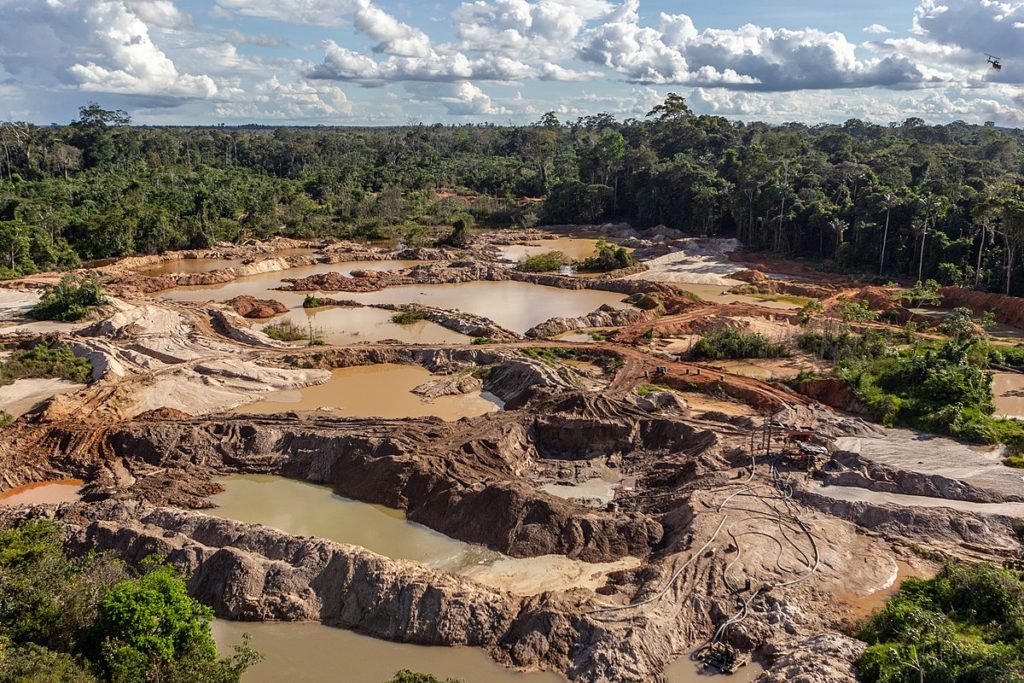
Deforestation and cassiterite mining in the Tenharim Indigenous Land of Igarapé Preto, Brazil / Vinícius Mendonça
As tourism remains closed, illegal logging has also been on the uptick in many other countries such as Columbia, Venezuela, Madagascar, Malaysia, Indonesia, Cambodia, and the Philippines.
Learn more here.
5. Bolivia
Along with the Amazon, the coronavirus is taking a toll on local peoples in neighbouring Bolivia. Prior to the pandemic, the country’s tourism industry had been growing significantly with many locals becoming mountain guides, store owners, drivers and excursion leaders.
When borders closed and tourists stopped visiting, many were unaware of how dependent they were on tourism income. In the capital city, La Paz, over half of the storefront tour companies have been forced to close permanently.
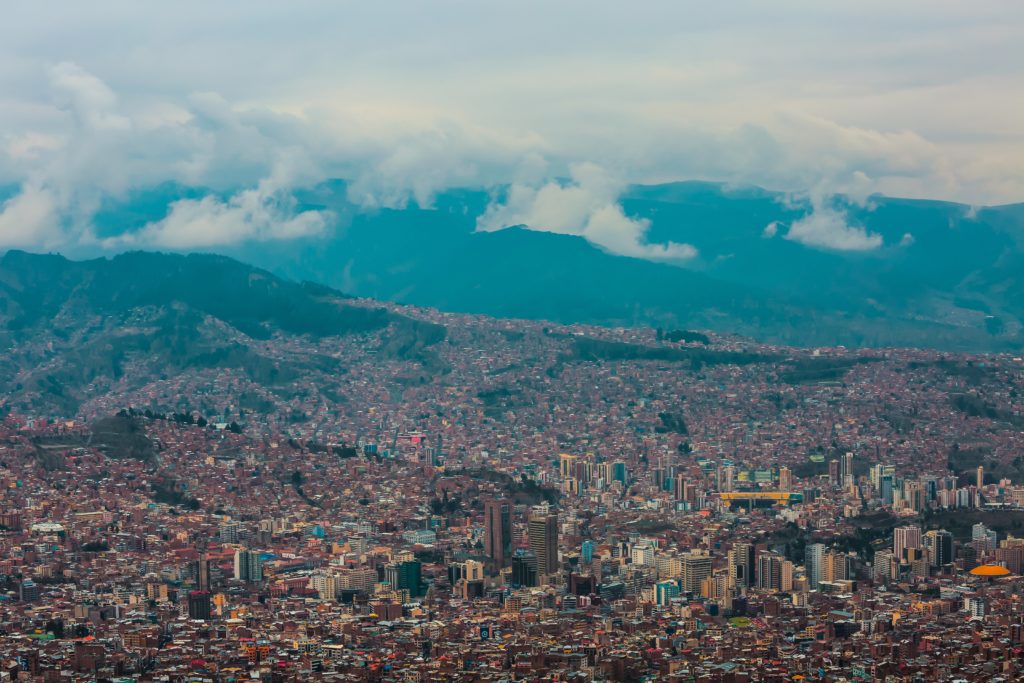
La Paz, Bolivia / Tobias Jelskov
With little other work available, many have had to frantically turn to the country’s gold mining industry. The work is difficult and pays less than $400 Canadian a month. To make matters worse, the mines are known to leak poisonous mercury into the water and ground. The COVID-19 crisis has highlighted how crucial tourism is to this developing nation.
Learn more here.
The Bottom Line
It’s apparent from these 5 examples that all or nothing is a huge problem for tourism. Before the coronavirus pandemic, the way we were travelling was unmanageable and many of us were wishing for a global reset. After getting exactly what we wished for, we have now seen what the implications of no tourism are. This will hopefully encourage the tourism industry’s revival to be more sustainable. Here are 5 ways you can help.
What You Can Do To Help
- Donate to the Adventure Travel Conservation Fund, Rhino 911 or the Nature Conservancy
- Once travelling is an option again, choose destinations that prioritize sustainability
- Consider how you travel and move slower while there
- Purchase local and eco-friendly options
- Join the Impact Travel Alliance and stay informed

